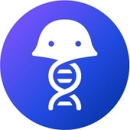While biotech has long been a vital component of the global tech market, this pivotal sector has seemingly reached new heights over the past decade. And although organizations around the world have tried to rule the life sciences space, the United States remains the undisputed biotech leader.
Biotech Companies to Know
- GRAIL
- Benchling
- ArcherDX
- Flatiron Health
- PWNHealth
According to reports, the nation’s life sciences sector alone generates over $112 billion in revenue. In light of biotech’s mounting economic impact, it’s no surprise that tech hubs across the country are witnessing a surge in life sciences companies, bolstering the nation’s status as a biotech epicenter.
Over the past couple years, the importance of the biotech industry has been even further amplified, as the world raced to create a COVID-19 vaccine.
While focus has been on combating COVID-19, the country’s biotech leaders continue to dedicate themselves to addressing other pressing medical issues. Backed by teams of world-renowned scientists and technologists, these organizations are addressing challenges across the healthcare spectrum. Whether they’re formulating new cancer treatments or harnessing the power of human genetics, the nation’s biotech companies are making a monumental impact on the future of medical research and drug discovery.
We’ve rounded up the top biotech companies to give you a glimpse into the burgeoning life sciences sector.
Biotech Companies to Know
Location: Ann Arbor, Michigan
Strata Oncology is a genomic testing company working on precision medicine for cancer patients. The company’s StrataNGS genomic profiling test is effective for smaller tumor tissue samples compared to other tests, making testing that can inform immunotherapy decisions more accessible to patients with advanced solid tumors.
Location: New York, New York
Pfizer is a biotech and pharmaceutical company that develops digital solutions and medical treatments. It specializes in the development and production of therapies, vaccines and drugs for disease prevention, treatment and overall wellness. The company is best known for developing the first FDA-authorized Covid-19 vaccine in its partnership with BioNTech, during which it used remote site monitoring and real-time predictive modeling to support large-scale clinical trials.
Location: Boston, Massachusetts
Biotech firm Asimov is a genetic design company. It uses machine learning, computer-aided design and a niche of biology known as synthetic biology — a field that redesigns existing organisms for new uses — to genetically engineer therapeutics like biologics and gene therapies. Asimov markets a platform that includes host cells, a genetic parts library, technical guides and design software for creating genetic systems in various types of cells.
Location: Bagsværd, Denmark
Novo Nordisk has been around since the 1920s, and today focuses on developing treatments and pharmaceuticals for chronic illnesses such as diabetes and hemophilia. The company has roughly 860 research and development employees working in the United States and is conducting clinical trials in more than four dozen countries.
Location: Cambridge, Massachusetts
Moderna is a pharmaceutical company working to use mRNA technology to develop medicines, vaccines and therapeutics. Infectious diseases, immuno-oncology, cardiovascular disease and autoimmune diseases have been among Moderna’s areas of focus.
Location: Wakefield, Massachusetts
Endpoint Clinical makes tech that life sciences teams rely on to keep clinical trials for medications, medical devices and other biotech products running on time, on budget and in compliance. Using interactive response technology, or IRT, Endpoint facilitates logistics including patient randomization and equipment supply chains to keep the patient-participant and drug supply sides of medication and biotech device trials on course.
Location: San Francisco, California
Benchling is dedicated to speeding up life sciences research through its suite of unified applications, which are housed within the company’s life sciences research and development cloud. The cloud serves as a platform for centralizing and standardizing all R&D data, enabling users to track every workflow, automatically interlink related data and easily and quickly export data. Benchling’s applications can be used for the research of antibodies, cell therapy, proteins and peptides, gene therapy, vaccines and more.
Location: Menlo Park, California
GRAIL is on a mission to detect cancer at earlier stages so that it can be more easily cured. The company focuses on seeking cancer signals in the blood, guided by the belief that tumors release cell-free nucleic acids into the bloodstream, which are thought to be a direct measure of cancer and can potentially be detected before the onset of symptoms. GRAIL intends to foster a deeper understanding of cancer biology through its high-intensity sequencing assays and population-scale clinical studies.
Location: New York, New York
Flatiron Health aims to reinvent cancer care by learning from the experiences of cancer patients. The company’s Flatiron HC platform can help providers with administrative tasks, matching patients to clinical trials they’re eligible for and accessing patient information whenever or wherever they need.
Location: Rahway, New Jersey
Merck’s efforts center around biopharmaceutical research for preventing and treating disease in people and animals with a focus on oncology, vaccines, infectious diseases, COVID-19, cardio-metabolic disorders and discovery and development.
Location: Cambridge, Massachusetts
Schrödinger is powering drug research with its computer simulations platform. Founded in 1990, the company employs physics-based methods to evaluate chemical matter and compounds before synthesis. As a result, researchers should see faster lead discoveries, accurate property descriptions and access to large-scale molecular exploration. The company also provides integrated data and visualization tools
Location: New York, New York
Imagen Technologies is dedicated to making diagnostic care more accessible while eliminating errors in radiology. The company’s FDA-cleared Computer Assisted Detection and Diagnosis software applies AI technology to medical image analysis in an effort to improve patient outcomes.
Location: Lexington, Massachusetts
Founded in the 18th century, Takeda is a global pharmaceutical company with a strong emphasis on research and development. The company focuses its research in several areas: oncology, rare diseases, plasma-derived therapies, vaccines, neuroscience and gastroenterology. In the U.S. alone, Takeda has created over 50 products and service programs that benefit patients and physicians.
Location: Austin, Texas
Natera is a genetic testing and diagnostics company dedicated to changing how doctors and patients manage genetic disease. The company’s solutions include personalized cancer care management, health assessments for transplant patients and women’s health testing. Natera aims to deliver technology and finely-tuned workflows that drive superior clinical and analytics performance.
Location: Boston, Massachusetts
SOPHiA GENETICS is a healthtech company that aims to make data-driven medicine the standard for life sciences research. Its SOPHiA DDM Platform is a cloud-based SaaS that can generate insights and analyze data based on differing diagnostic modalities. The company says that its product is used by over 780 biopharma institutions, laboratories and hospitals around the world.
Location: New York, New York
Formation Bio is a drug development company that uses AI to discover new drugs, and then to develop them into pharmaceutical products that are viable to bring to market. By leaning on AI for every stage of the drug development process, from research to trial design to marketing, the company is able to radically decrease the timeline that new pharmaceutical development typically follows.




















